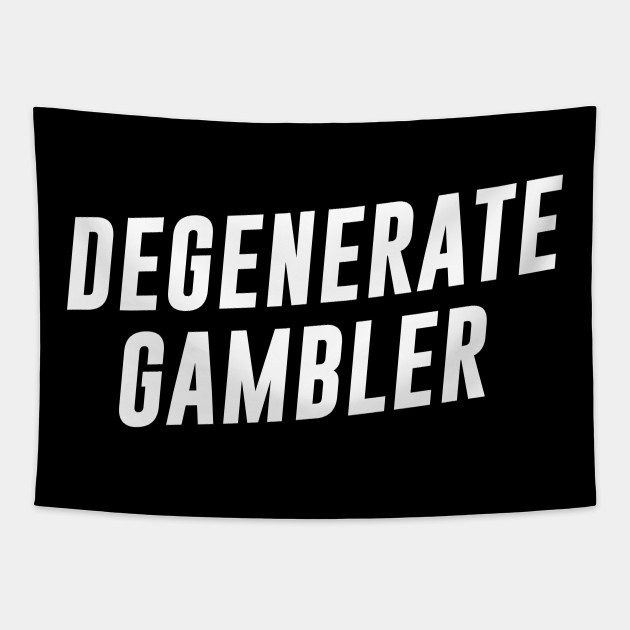Good Evening, Ladies and Gentlemen and welcome to the Gamblers Society. My name is Hank and I’m a degenerate gambler. In fact I’m such a degenerate that I’ve become moderately successful at it and it’s made me consistent money after years of losing. Super Bowl LIV Degenerate Gambling, Betting, and General Open Thread Come bet the Super Bowl with a bunch of Big Ten degenerates and one crying Packers fan! 20,000-Foot View.
Listen on: iTunes | Google Podcasts | Online
Don’t let this wave of stock-market volatility go to your head. The value of the companies in your portfolio doesn’t change by a positive or negative 5% three times a day. Get the value right and the price will follow.
For example, my firm recently met with a prospective client, a physicist who has made millions of dollars by owning apartment buildings in the U.S. and Canada. He confessed that he never was able to make much money in stocks. As we talked to him we observed why. The Dow was having one of those 500-points up and 500-points down days. He was visibly happier when the Dow was going up and sadder as it was going down.
People who are otherwise successful as businessmen and as investors in private businesses or real estate change their behavior completely when they enter the stock market. I have a friend whose father has made hundreds of millions of dollars by building several companies from scratch in Mexico. An absolutely brilliant businessman — and the worst stock investor ever. He’d fret about every move in his stock portfolio.
As we talked to the physicist we used this analogy: What we (or any rational investor) do is not much different from buying an apartment building. First you look at the quality — how well the building is built, the location and demographic trends in the area, and so on. Then you start valuing this building. You formulate your best-case and worst-case scenarios for rents, occupancy, property taxes, and other important variables — price to square-foot, price-per-bedroom, price to worst-case rent. In the stock market these shortcuts are price to earnings, price to cash-flows, price to book-value.
If the price of the apartment building is at or below your worst-case scenario, you buy the building. If not, you move on. This is a rational, businesslike way of valuing an apartment building or any asset, including a publicly traded one.
Yet there are two important differences between an apartment building (or a private business) and a publicly traded company: The latter offers instant liquidity and low transaction costs. These differences should be huge advantages. To sell an apartment building may take months or years. Transaction costs are enormous: 3%-7% of the building’s value to buy and to sell (“in” and “out” costs combined could be as high as 6%-14%).
The stock market should be a paradise for an apartment investor or businessman. Instead of having to deal with tenants and local authorities, you buy stocks or even an apartment REIT (real estate investment trust) that owns hundreds of apartment buildings (arguably reducing the risk of owning a single building). The REIT is run by professional management (in this case the definition of professional is that they get paid). You can let them deal with tenants. Of course, you have to analyze the REIT’s management to make sure that they are competent and properly incentivized, but this analysis is not much different from what a businessperson would do when hiring a manager of an apartment building.
Degenerate Gambler Ryan

So, you can do the same analysis you performed on an individual apartment building on this REIT, except — and here is where we enter into the domain of public equities and the rational person is replaced by an irrational one. Stocks are priced every second of the trading day. Thousands of times a day someone tells you, this company is worth this much. Actually, this is not what they tell you; this is what you hear. What they tell you is “I would buy or sell this company for this much at this moment.” There are a million reasons why someone might want to buy or sell a stock on any given day. A lot of them have nothing to do with a company’s value. So yes, there is a difference between value and price. You only know the difference if you’ve spent the time to value the company.

If your apartment building was a public stock its price would fluctuate daily, and most of the fluctuation would just be noise. The price would be moving based on local weather, employment, highway traffic, a mayoral race — the list is long. A lot of these factors will be transient and random in nature — in a word, noise. If a building similar to yours is put on the market at a ridiculously low price by a forced seller, you are not going to be upset that your building is now probably worth less, you’ll see it as an opportunity to buy another building on the cheap. That is rational, businesslike behavior.
The liquidity of the stock market and its negligible transaction costs are great features, but probably do most people more harm than good. They can turn even most otherwise astute private investors into degenerate gamblers on a daily basis. The difference between a gambler and a degenerate gambler: the gambler plays with as much money as he can afford to lose; the degenerate gambler puts everything on the line.
Degenerate Gambler Meaning
When you gamble in the stock market with all of your life savings, you are a degenerate gambler. That’s why it’s important to focus on what businesses are worth, not how the market prices them.